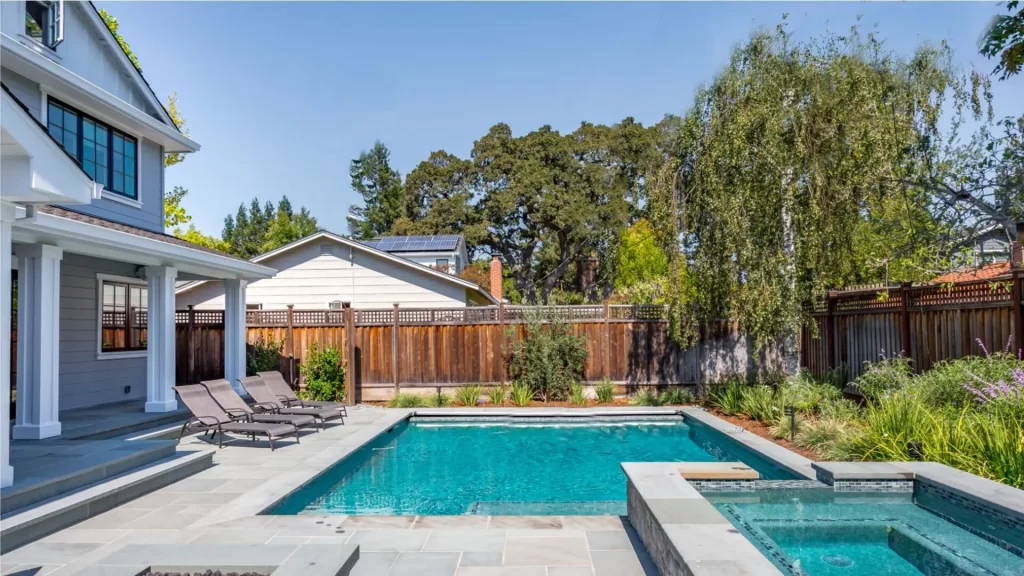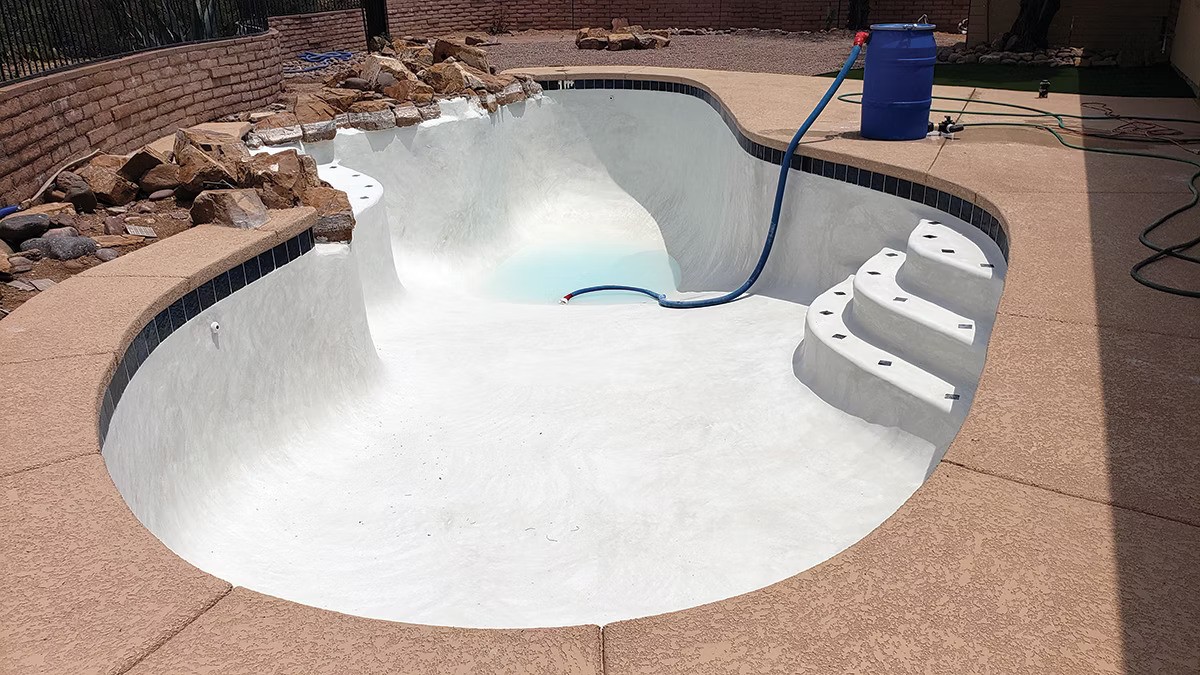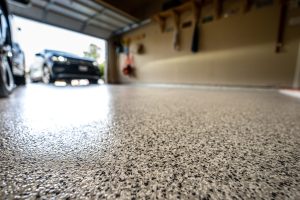The Enduring Appeal of White Plaster Pools: A Timeless Classic
For decades, white plaster has reigned supreme as the go-to material for swimming pool interiors. Even with a surge of new finishes in recent years, white plaster remains a popular choice for both residential and commercial pools. But what exactly is white plaster, and why has it maintained its popularity for so long? This article delves into the world of white plaster pools, exploring its advantages, maintenance needs, and considerations for those contemplating this classic pool finish.
Understanding White Plaster
At its core, white plaster is a simple yet effective pool surfacing material. Traditionally, it’s a blend of white cement, marble dust, and water. This straightforward composition offers several benefits:
- Affordability: White plaster is generally the most cost-effective pool finish option.
- Durability: When properly maintained, white plaster offers excellent longevity. The simple mix resists wear and tear from pool chemicals and environmental factors.
- Classic Beauty: The pristine white surface creates a timeless aesthetic, offering a refreshing and inviting appearance to your pool.
- Light Reflectivity: White plaster’s bright surface reflects sunlight, making the water appear a vibrant, clear blue. This effect is particularly desirable in areas with ample sunshine.
Beyond the Basics: Considerations for White Plaster
While white plaster boasts numerous advantages, it’s essential to understand its limitations before making a decision. Here are some key factors to consider:
- Surface Texture: Unlike some newer finishes with textured aggregates, white plaster has a smooth surface. This can be slippery when wet, so caution is advised, especially for young children or elderly users.
- Susceptibility to Staining: White plaster is more prone to staining compared to darker colored finishes. Minerals in your water source, such as iron, can leave noticeable stains if not addressed promptly.
- Maintenance Requirements: White plaster requires consistent chemical balancing and cleaning to maintain its pristine appearance. Regular brushing and proper water chemistry are crucial to prevent algae growth and discoloration.
- Aesthetics: The stark white color might not suit all design preferences. Some pool owners may find it too simplistic or prefer the visual interest offered by colored or textured pool finishes.
White Pool Plaster: Striking the Balance Between Beauty and Durability
Maintaining the Luster of Your White Plaster Pool
Keeping your white plaster pool sparkling requires dedication, but the rewards are a refreshing and inviting oasis in your backyard. Here are some essential maintenance tips:
- Regular Brushing: Brushing the pool walls and floor helps remove algae, dirt, and debris that can stain the surface. Aim for brushing at least twice a week during peak usage times.
- Chemical Balancing: Maintaining proper water chemistry is vital for preventing stains and ensuring the longevity of your white plaster. Regularly test and adjust your pool’s pH, chlorine, and calcium hardness levels.
- Staining Prevention: Address potential staining issues promptly. Consult a pool professional for the best course of action to remove stains without damaging the white plaster.
- Shock Treatment: Regularly shocking your pool helps eliminate bacteria and contaminants that can contribute to staining and cloudiness.
- Professional Service: Consider scheduling professional cleanings periodically to ensure a thorough cleaning and to address any minor surface issues before they escalate.
Alternatives to White Plaster
While white plaster is a classic choice, other pool finishes offer different benefits and aesthetics. Here are a few popular alternatives:
- Aggregate Plaster: This option incorporates colored pebbles or glass beads into the plaster mix, creating a textured and more stain-resistant surface.
- Quartz Plaster: Similar to aggregate plaster, quartz plaster utilizes crushed quartz for a luxurious, sparkling finish with improved durability.
- Polished Quartz: This high-end option offers a smooth, glass-like finish with exceptional clarity and brilliance. However, it requires meticulous maintenance and is more susceptible to scratching.
- Wet Edge Systems: These innovative systems create a visually stunning “beach entry” effect with a gradual slope into the pool.
The Final Splash: Choosing the Right Finish for Your Pool
The decision between white plaster and other pool finishes ultimately depends on your priorities and preferences. Consider your budget, desired aesthetics, and the amount of time you’re willing to dedicate to maintenance.
White plaster remains an excellent option for those seeking a timeless, affordable, and easy-to-maintain pool finish. With proper care, a white plaster pool can provide years of enjoyment and enhance the visual appeal of your outdoor space.
Additional Resources:
For a more in-depth exploration of pool maintenance and troubleshooting specific to white plaster, consult pool professional resources or reputable pool supply stores.















Post Comment